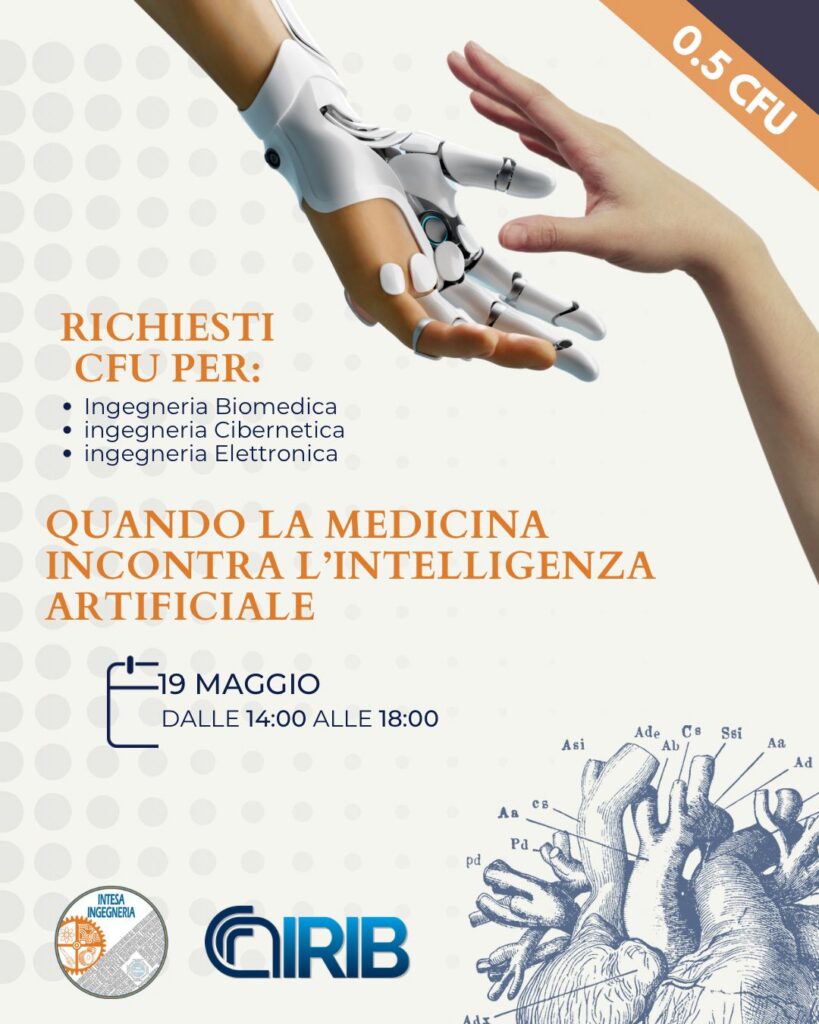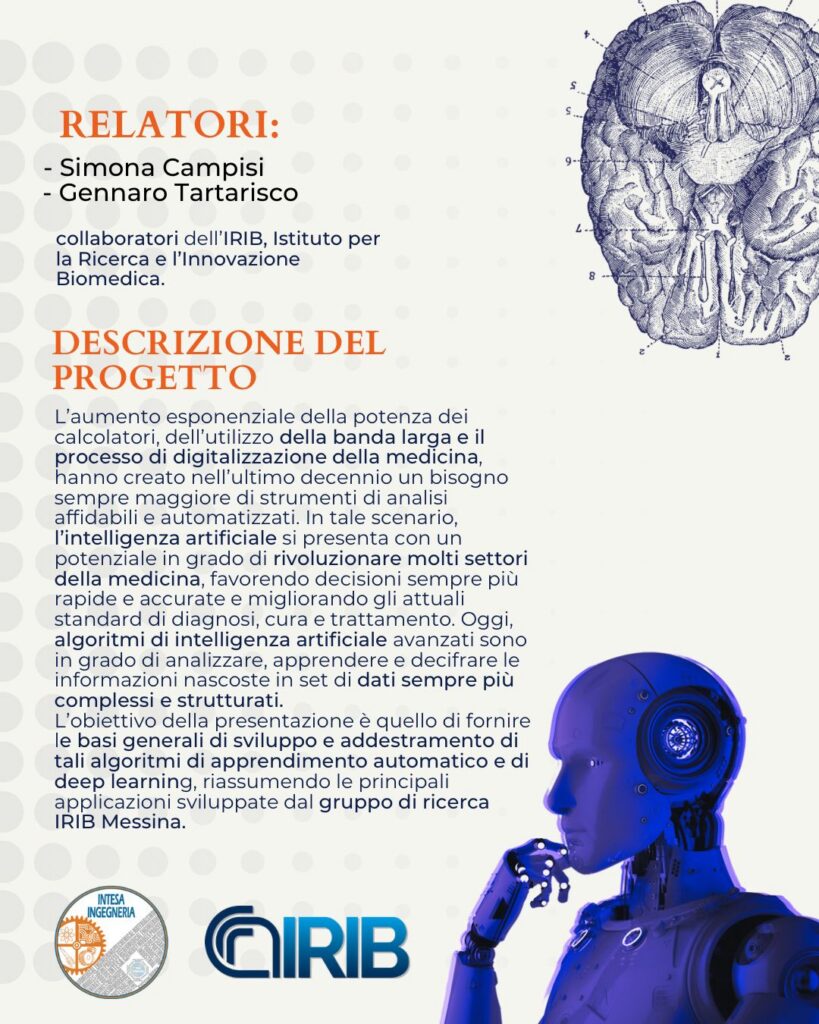

Il seminario si terrà il 19 Maggio dalle ore 14.00 alle ore 18.00 presso l’ERSU in Via delle Scienze ed. 1 – Aula Schembri dell’Università degli studi di Palermo.
INFO : seminari.irib@irib.cnr.it
Abstract:
Alopecia areata is an autoimmune disease that occurs when the immune system attacks hair follicles and causes them to lose the ability to enter the growth phase of the hair growth cycle, ultimately resulting in hair loss. Hair follicles were previously thought to be missing from the areas of complete baldness, however, recent studies have shown that even the bald areas of the human scalp contain hair follicles and hair follicle stem cells. Recently, pharmacological inhibition of JAK-STAT signaling was seen to enhance hair re-growth by awakening quiescent hair follicle stem cells (HFSCs). Thus, JAK-STAT signalling pathway has emerged as a promising therapeutic agents for the treatment of hair loss. Among different JAK isoforms, JAK3 is an ideal target for drug discovery because it only regulates a narrow spectrum of gc cytokines. In a recent study, we reported the discovery of MJ04, a novel and highly selective 3-pyrimidinylazaindole based JAK3 inhibitor, as a potential hair growth promoter. During in-vivoefficacy assays, topical application of MJ04 on DHT-challenged AGA mice and athymic nude mice resulted in early onset of hair regrowth. Furthermore, MJ04 significantly promoted the growth of human hair follicles under ex-vivo conditions. MJ04exhibited a reasonably good pharmacokinetic profile and demonstrated a favorable safety profile under in-vivo and in-vitro conditions. Taken together, we report MJ04 as a highly potent and selective JAK3 inhibitor that exhibits overall properties suitable for topical drug development and advancement to human clinical trials.
INFO : seminari.irib@irib.cnr.it
Abstract:
In this talk, I will present our latest results in the study of extracellular vesicles in various age-related disorders, such as cancer and osteoarthritis. We have identified new targets to combat drug resistance in cancer and to address inflammation and disease progression in osteoarthritis. The use of EVs enables us to deliver specific peptides and mRNA molecules to target cells, aiming to halt disease progression in osteoarthritis and to overcome drug resistance in cancer. Additionally, these EVs can function as biomarkers, enhancing their applicability in nanomedicine for disease control and the monitoring of disease progression.
INFO : seminari.irib@irib.cnr.it
Abstract:
Oxford Nanopore Technologies (ONT) ha rivoluzionato il campo del sequenziamento del DNA attraverso l’introduzione di una tecnologia innovativa basata su nanopori. Le principali caratteristiche di questa tecnologia includono l’alta velocità di sequenziamento, la capacità di sequenziare frammenti estremamente lunghi e la possibilità di effettuare il sequenziamento in tempo reale. Queste caratteristiche rendono la tecnologia ideale per una vasta gamma di applicazioni, tra cui la genomica, la diagnosi di malattie genetiche, la microbiologia, la virologia, l’ecologia microbica e gli studi sulla metilazione del genoma umano. Durante il talk verranno discusse le sfide attuali e le prospettive future della tecnologia, evidenziando il suo potenziale impatto nel campo della biologia molecolare e della medicina.
INFO : seminari.irib@irib.cnr.it